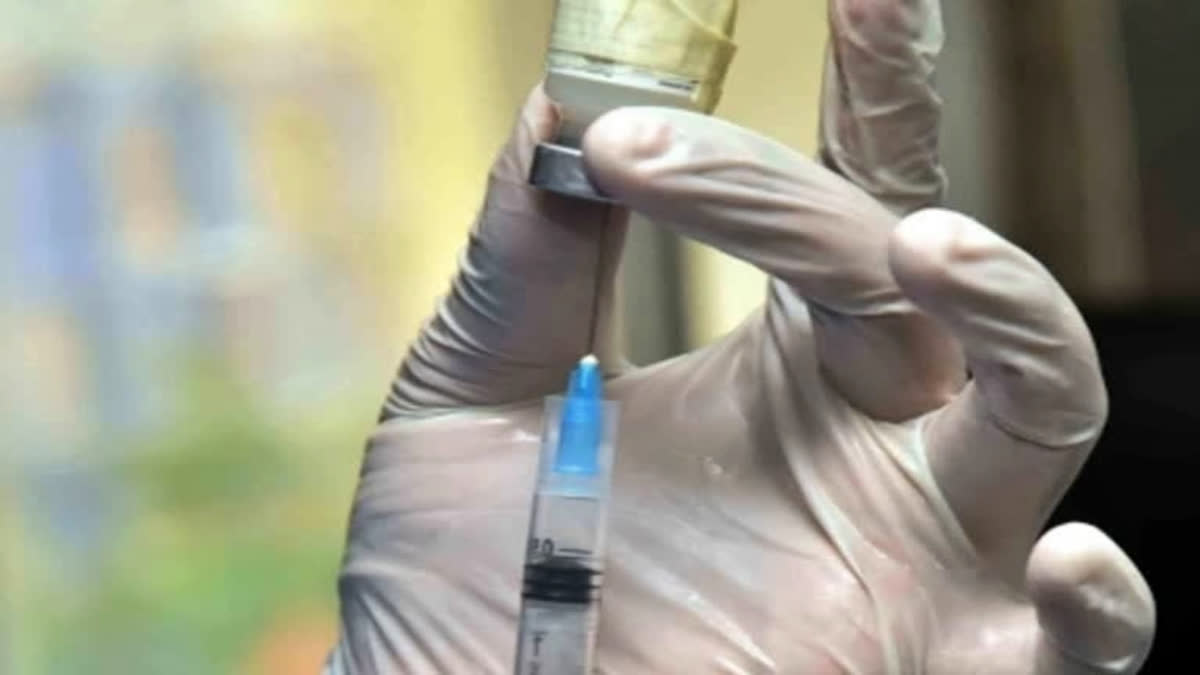Washington: The low cost of the latest HPV vaccine with high-throughput manufacturing facilities puts India in a position to supply them globally and domestically to help eliminate cervical cancer in our lifetime, an Indian public health scholar at Harvard has said.
India has a safe human papillomavirus (HPV) vaccine. It is a powerful tool to prevent cervical cancer and save lives. India has a nationwide screening programme that can eliminate cervical cancer in our lifetime, said Dr Mrinalini Darswal from the Harvard T H Chan School of Public Health.
The low cost of the Indian HPV vaccine with the availability of high-throughput manufacturing facilities puts us in a position to supply HPV vaccines globally and help save millions of precious lives. We demonstrated such leadership with Covid-19 vaccines recently, earning the admiration of the world, Darswal, a 2002 batch IAS officer, said.
Darswal was the Commissioner, Food Safety; Drugs Controller; Project Director, National AIDS Control Programme, Special Secretary Health, and Family Welfare and Member Secretary of the Coordination Committee on Juvenile Drug Addiction, Government of Delhi. Before coming to Harvard, she moved to the University of Texas (UT) at Austin for a Master's in Economics.
As a mother of a nine-year-old daughter and a physician myself, I was one of the first in line to get the HPV vaccine shot when it was first made available in India in 2014. We got three doses each. The latest vaccines offer close to 100 per cent protection with a single shot, she told PTI.
The latest vaccine she referred to is the Cervavac', India's first indigenous HPV vaccine that can prevent cervical cancer and other HPV-associated cancers. Developed and manufactured by Pune-based Serum Institute of India (SII), this vaccine is soon to be included in India's national immunisation programme in 2024.
Pointing out that a wider range of affordable and accessible vaccines against human papillomavirus (HPV) are needed to meet global cervical cancer elimination efforts, a November 2023 study by The Lancet Oncology evaluated the immunogenicity and safety of a quadrivalent HPV vaccine in the 914 years cohort. We observed a non-inferior immune response with this quadrivalent HPV vaccine in girls and boys aged 914 years and an acceptable safety profile compared with the comparator vaccine, it said.
Yearly, about 1,24,000 new cases, most of them poor, are diagnosed in India, and 78,000 women die from this disease, an ominous but highly preventable mortality rate of 80 per cent, she noted. As many as 2.5 crore women among 50 crore women in India harbour HPV16/18 infection, the cause of 83.2 per cent of invasive Cervical cancers. Six in 10 women with such cancers succumb.
The low coverage of screening- just 2 in 100 women- and vaccination, coupled with the high burden of poverty and social stigma, contribute to the high mortality rate of cervical cancer in India, she said, and asserted, This cancer is preventable! And it can be eliminated within our lifetime.
Referring to India's national immunisation programme including the latest HPV vaccine, she said, The urgency of the move is amplified in view of India bearing one of the highest burdens of cervical cancer globally, with the load falling majorly on the poor, lacking health coverage and financial resources for treatment.
According to her, besides vaccination, screening for cervical cancer is also crucial to detect and treat pre-cancerous lesions before they become invasive, reducing cervical cancer mortality by 50 per cent.
However, screening for cervical cancer faces many challenges in India, such as lack of awareness, stigma, cultural barriers, structural barriers, and low compliance. According to the National Family Health Survey 2021, only 1.97 per cent of women aged, she said.



